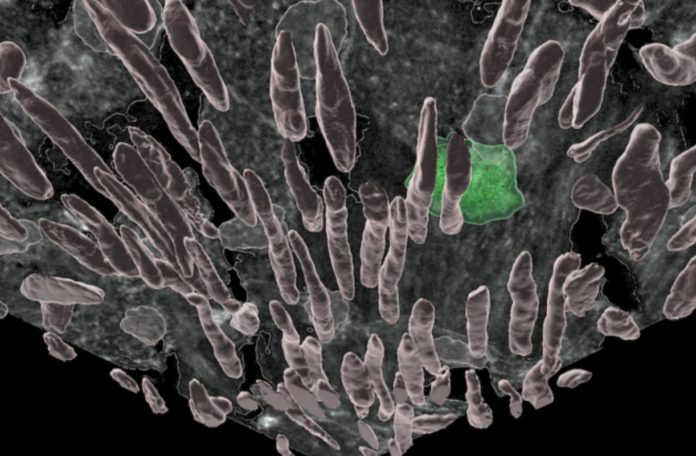Immune cells in the blood can detect octanal, causing severe inflammation and atherosclerosis.
Immune cells in arteries can detect their surroundings and trigger inflammation, according to researchers at the La Jolla Institute for Immunology (LJI).
“Smelly molecules can be pro-inflammatory,” said study leader LJI Professor Klaus Ley.
The current study, published in Science, demonstrates that this inflammation in mice can result in cardiovascular disease and atherosclerosis. By preventing immune cells called macrophages from recognizing a compound called octanal, the researchers were able to reduce inflammation.
Even while everyone has some octanal in their blood, LJI scientists have shown that patients with high LDL cholesterol also have higher quantities of octanal in their blood. Diet or oxidative stress in cells can cause this excess octanal to enter the bloodstream.
Octanal is already detectable by the human nose. It smells like a reheated chicken, according to Ley.
“Like chicken that is not so nice anymore,” he adds.
A study led by LJI Scientific Associate Sara McArdle, Ph.D., published in 2019 was the first to demonstrate that macrophages in blood artery walls contain some of the olfactory receptors required to detect molecules. Thanks to an olfactory receptor called OR6A2, LJI scientists were the first to demonstrate that these macrophages can detect octanal in 2020.
“Macrophages are some of the most important cells in our immune system,” adds study first author Marco Orecchioni, Ph.D., an instructor at LJI. “They are constantly checking for signals. We could say they ‘sniff’ their environment and respond.”
The new report is the first to reveal how smelling out octanal might increase artery inflammation.
Orecchioni looked at the effects of injecting octanal into “wild type” mice and mice with the gene for the mouse macrophage receptor Olfr2 (which is OR6A2 in humans) removed. Orecchioni discovered that as the Olfr2 receptor detects octanal, inflammation becomes significantly worse. The arteries begin to develop the lesions associated with atherosclerosis over time.
The researchers next applied a molecule known to block this mouse olfactory receptor, citral (which has a lemon-like odor), and noticed that inflammation decreased. They were able to stop the disease from progressing by making macrophages blind to octanal.
Ley and Orecchioni believe that human OR6A2 inhibition may also be possible.
“These receptors are very well known as drug targets,” adds Ley. “In fact, most drugs on the market today act on this type of receptor, called a GPCR.”
Source: 10.1126/science.abg3067
Image Credit: MATT ELLENBOGEN, LA JOLLA INSTITUTE FOR IMMUNOLOGY
You were reading: Immune cells can “sniff” out their surroundings and cause inflammation, leading to heart diseases
